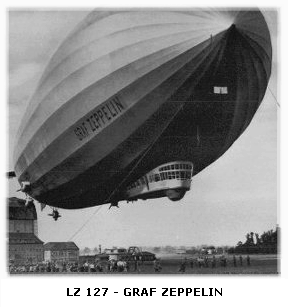It Happened in 1929 . . .
It Happened in 1929 . . .
The Drys held their torn and tattered banners high. Mrs. Mabel Walker Tillebrandt said that Prohibition certainly could be enforced "but New York will be the last citadel to fall." She said the nation's capital already was on the water wagon, down almost, to the last hostess: "The ribaldry of the cocktail shaker, the exchange of homebrew recipes and the florid eagerness for false stimulation from what is almost always questionable liquor are rapidly fading from the social hours in Washington . . . It has come to be more a social achievement to establish the reputation for successful entertainment without cocktail, highball or liquors" . . . The government dropped its liquor cases against thirty New York night clubs, conceding that it couldn't get juries to convict . . . President Hoover clenched his fists and told a New York meeting that the Eighteenth Amendment simply had to be enforced. He said that too many people seemed to think that "laws are made for those who choose to obey them."
Henry Ford attended a dinner in honor of a Jewish philanthropist, David A. Brown, and paid tribute to the great benevolence of the Jewish people, their philanthropy, their eagerness to make this world better, to educate the untutored, to heal the sick, to care for the orphans; their intent and intelligent participation in all that makes for civic righteousness and social justice stamps them a great people." The address was broadcast . . . Tex Rickard died . . . A Rutgers University freshman drowned in the Raritan Canal fleeing from a class rush; the Student Council then abolished class rushes and pajama parades . . . On May 6, Harry Sinclair went to jail for contempt of the Senate in the Teapot Dome scandal; on May 15, he was reelected chairman of the Sinclair Consolidated Oil Corporation . . . Gray-haired Mrs. Mary Ware Dennett, 53, was fined $300 in Brooklyn for sending "obscene matter" a pamphlet on sex, prepared for her children through the mails. On appeal, she was cleared . . . Calvin Coolidge was elected a director of the New York Life Insurance Company . . . In an economy move, Herbert Hoover banished to Fort Meyer the seven horses quartered in the White House stables.
Babe Ruth's estranged wife, burned to death in Watertown, Massachusetts, left $5 to the Home Run King and $50,000 to their adopted daughter, Dorothy, 9 . . . Captain Frank Hawks set a record for the 2700-mile flight from Los Angeles to New York: 18 hours, 21 minutes and 59 seconds . . . The Graf Zeppelin flew around the world . . . Marshal Foch died with the words allons y (let's go) on his lips . . . In Boston, Harry I. Canter drew a year in jail for criminally defaming ex-Governor Alvan T. Fuller by carrying a placard bearing the words, "Fuller, murderer of Sacco and Vanzetti" . . . Commander Richard E. Byrd planted the Stars and Stripes on the South Pole . . . The Ford Motor Company boosted daily wage rates from $6 to $7 . . . Americans bought $850,000,000 worth of radios . . . There were 23,000,000 cars on the roads . ..Two Southern governors, Theodore Bilbo in Mississippi and Huey Long in Louisiana, began to attract national attention . .
Bing Crosby, a singer, was touring with Paul Whiteman's band . . . Major H.0.D. Seagrave set a new speed record for autos: 211 mph . . . Movie attendance soared to 100,000,000 per week . . .
On the literary front, Erich Maria Remarque's All Quiet on the Western Front led the fiction best-sellers, trailed by Sinclair Lewis's Dodsworth and such items as Scarlet Sister Mary, by Julia Peterkin, and Joseph and his Brethren, by H.W. Freeman . . . Also in the stores: allen and hoffaErnest Hemingway's Farewell to Arms, Thomas Wolfe's Look Homeward, Angel, William Faulkner's The Sound and the Fury, Ellen Glasgow's They Stooped to Folly, Ring Lardner's Round-Up and W.R. Burnett's Little Caesar. In non-fiction, Abbe Ernest Dimnet's The Art of Thinking was the best-seller. The list also included Frances Hackett's Henry the Eighth, Lytton Strachey's Elizabeth and Essex, Walter Lippmann's A Preface to Morals and Robert L. Ripley's Believe It or Not. Bertrand Russell's Marriage and Morals also was in the stalls, along with the James Thurber-E.B. White essay, Is Sex Necessary?
In the theater, Elmer Rice's Street Scene, with Erin O'Brien Moore and Beulah Bondi, won the Pulitzer Prize. Laurence Olivier made his Broadway debut in Murder on the Second Floor. Bette Davis appeared with Donald Meek in Broken Dishes. Libby Holman scored with the song, "Moanin' Low," in The Little Show, with Clifton Webb (and Fred Allen and Portland Hoffa). Eugene O'Neill's Strange Interlude was banned in Boston. Journey's End, the war play, was a big hit . . . Also on the boards: Gertrude Lawrence and Leslie Howard in Candlelight, Jacob Ben-Ami and Josephine Hutchinson in The Sea Gull, Edward G. Robinson in Kibitzer, Grace George in The First Mrs. Fraser, Walter Hampden in Richelieu, Jack Donahue and Lily Damita in Sons 0' Guns, Cary Grant in A Wonderful Night, Jimmy Durante, Eddie Foy, Jr. and Ruby Keeler in Show Girl, and Ruth Gordon in Serena Blandish . . . On the screen, nearly everybody talked. Jean Harlow, sixteen, had an extra's role in Laurel & Hardy's Double Whoopee.



